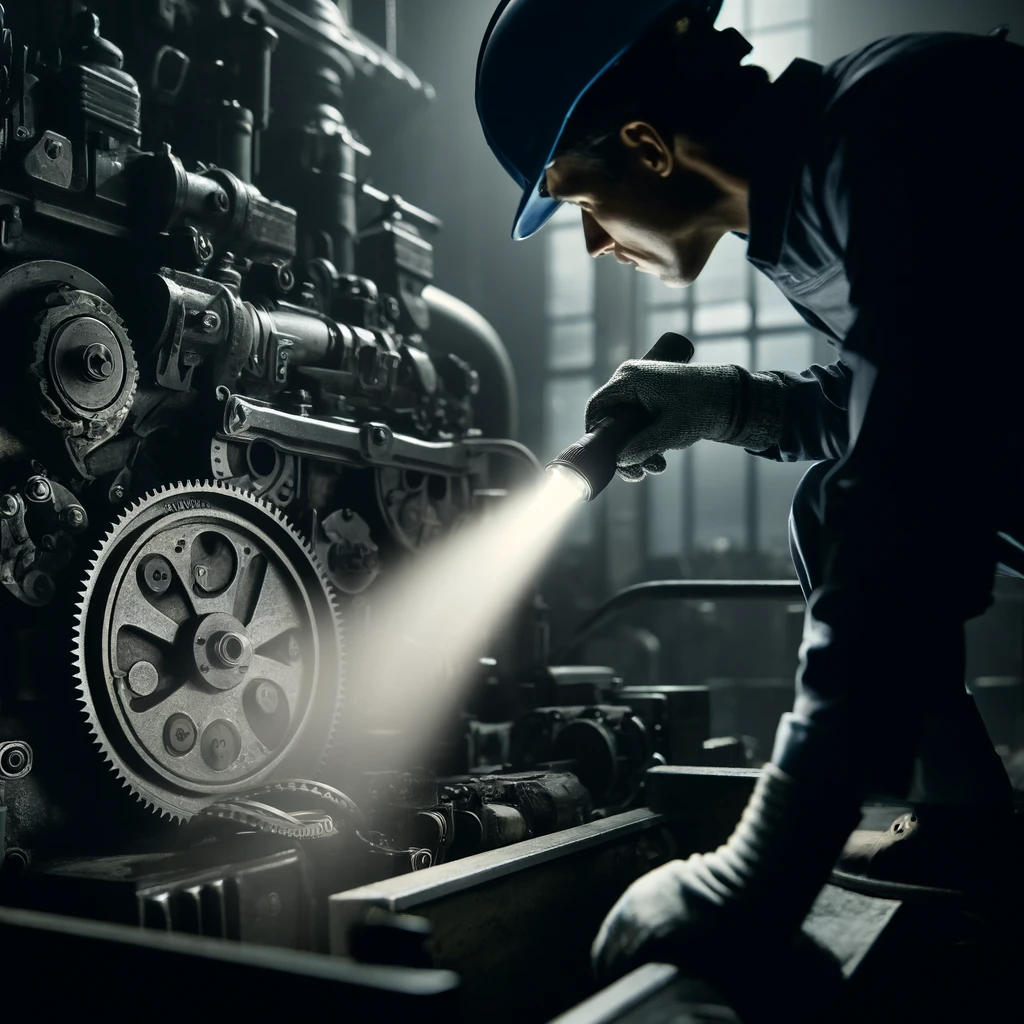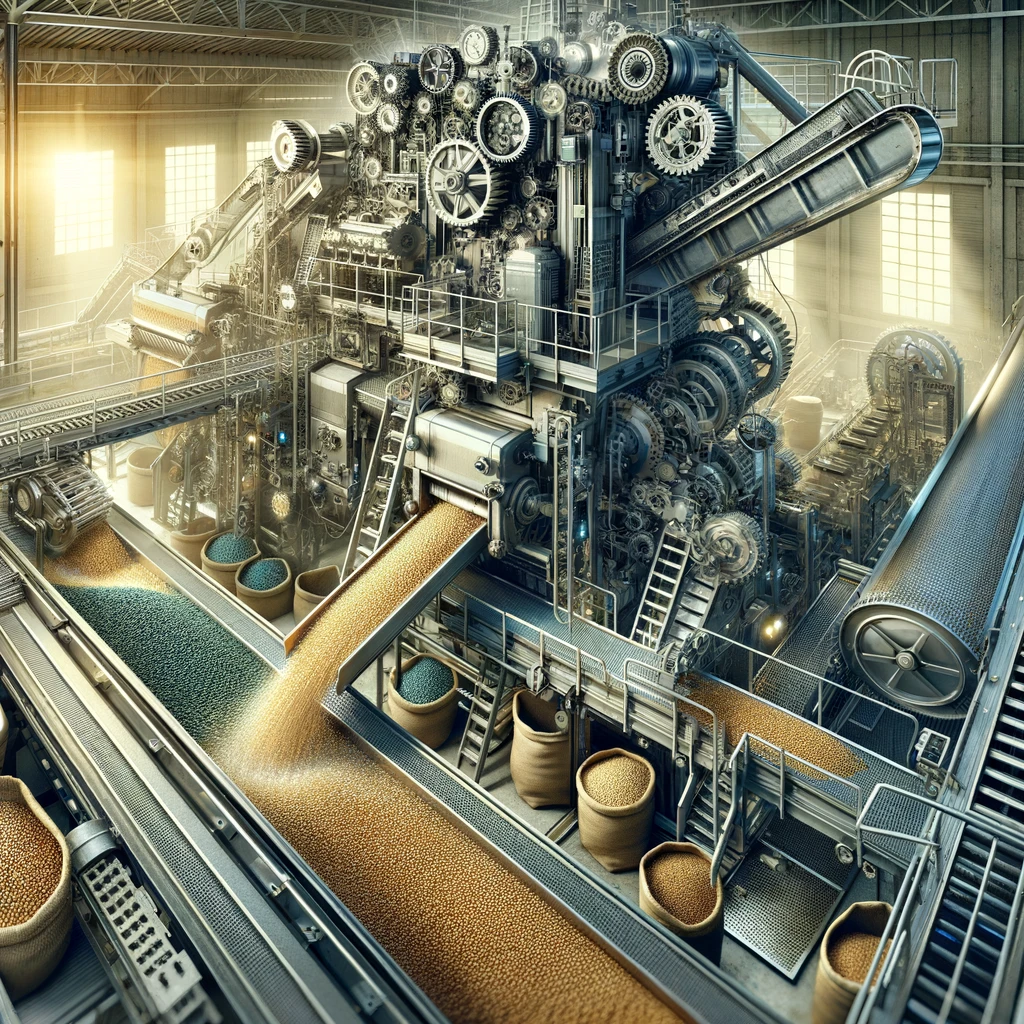Machinery
Definition
Machines collectively, especially those used in a particular industry or activity.
Parts of Speech
- Noun
Pronunciation
American English
- IPA Pronunciation: /məˈʃinəri/
- Respelling: muh-SHEE-nuh-ree (with "muh" as in "sofa," "SHEE" as in "she," and "nuh-ree" as in "narrate")
British English
- IPA Pronunciation: /məˈʃiːnəri/
- Respelling: muh-SHEE-nuh-ree (with "muh" as in "sofa," "SHEE" as in "she," and "nuh-ree" as in "narrate")
In both dialects, "machinery" places the primary stress on the second syllable, "SHEE." The pronunciation is the same across both American and British English, focusing on the clear articulation of "muh-SHEE-nuh-ree."
Etymology
Derived from the Latin word "machina", meaning "machine" or "engine", and the suffix "-ry" indicating a collection or set.
Derivatives
- Machinist
- Machine
- Machinate
- Machination
- Mechanism
Synonyms
- Equipment
- Apparatus
- Devices
Antonyms
- Hand tools
- Manpower
- Organic
Usage
Machinery is integral to various industries, from manufacturing and agriculture to construction and transportation. It enhances productivity, efficiency, and the ability to perform complex tasks.
- The factory uses advanced machinery for production.
- Proper maintenance ensures the long life of the machinery.
Related Terms
- Gear
- Mechanism
- Instrumentation
- Technology
- Engine
Detailed Definition
Noun
- Machinery (Noun): Machines collectively.
- Example: "The factory invested in new machinery to increase production efficiency."
- Machinery (Noun): The components and parts of a machine.
- Example: "The engineer inspected the machinery to identify the faulty part."
- Machinery (Noun): A system or set of processes used to achieve a particular result.
- Example: "The political machinery of the party is well-organized and efficient."
machinery



🇨🇳 Mandarin
- 机械 (Jīxiè)
- IPA: [t͡ɕī.ɕjɛ̀]
- Respell: Jee-she-eh
- 机器 (Jīqì)
- IPA: [t͡ɕī.t͡ɕʰǐ]
- Respell: Jee-chee
🇮🇳 Hindi
- मशीनरी (Maśīnarī)
- IPA: [məʃiːnəriː]
- Respell: Ma-shee-na-ree
- यंत्रवत् (Yantravat)
- IPA: [jəntrəʋət]
- Respell: Yan-tra-vat
🇪🇸 Spanish
- Maquinaria
- IPA: [makinaˈɾja]
- Respell: Ma-kee-na-ree-a
- Mecanismo
- IPA: [mekanizˈmo]
- Respell: Me-ka-nees-mo
🇫🇷 French
- Machinerie
- IPA: [maʃinʁi]
- Respell: Ma-shee-ner-ee
- Mécanisme
- IPA: [mekanism]
- Respell: May-ka-neesm
🇸🇦 Modern Standard Arabic
- آلات (Ālāt)
- IPA: [ˈʔaːlaːt]
- Respell: Aa-laht
- مكننة (Mukannanah)
- IPA: [mukænˈnænæ]
- Respell: Moo-kan-na-nah
🇧🇩 Bengali
- যন্ত্রপাতি (Yantrapāti)
- IPA: [jɔnt̪ropati]
- Respell: Yon-tro-pa-tee
- মেশিনারি (Meśināri)
- IPA: [meʃinaːri]
- Respell: Me-shee-na-ree
🇷🇺 Russian
- Машины (Mashiny)
- IPA: [mɐˈʂɨnɨ]
- Respell: Ma-shee-ny
- Механизмы (Mekhanizmy)
- IPA: [mʲɪxɐˈnʲizmɨ]
- Respell: Mee-kha-neez-my
🇵🇹 Portuguese
- Maquinário
- IPA: [makinaˈɾju]
- Respell: Ma-kee-na-ree-oo
- Mecanismo
- IPA: [mɨkɐˈnizmu]
- Respell: Me-ka-nees-moo
🇮🇩 Indonesian
- Mesin
- IPA: [ˈmesɪn]
- Respell: Me-sin
- Peralatan
- IPA: [pəraˈlatan]
- Respell: Pe-ra-la-tan
🇩🇪 German
- Maschinen
- IPA: [ˈmaʃiːnən]
- Respell: Ma-shee-nen
- Mechanismus
- IPA: [mexaˈnɪsmʊs]
- Respell: Me-ha-nees-mus
🇯🇵 Japanese
- 機械 (Kikai)
- IPA: [kikaɪ]
- Respell: Kee-kai
- 機構 (Kikō)
- IPA: [kikoː]
- Respell: Kee-ko
🇻🇳 Vietnamese
- Máy móc
- IPA: [maːj mok]
- Respell: May mok
- Cơ cấu
- IPA: [kɔ kau]
- Respell: Ko kow
🇰🇷 Korean
- 기계 (Gigye)
- IPA: [ɡi.ɡje]
- Respell: Gee-gyeh
- 기계류 (Gigyeryu)
- IPA: [ɡi.ɡje.ɾju]
- Respell: Gee-gye-ryoo
🇹🇷 Turkish
- Makine
- IPA: [maˈkinɛ]
- Respell: Ma-kee-ne
- Mekanizma
- IPA: [mekanizˈma]
- Respell: Me-ka-neez-ma
🇵🇰 Urdu
- مشینری (Maśīnarī)
- IPA: [məʃiːnəriː]
- Respell: Ma-shee-na-ree
- آلات (Aalāt)
- IPA: [aːlaːt]
- Respell: Aa-laht





